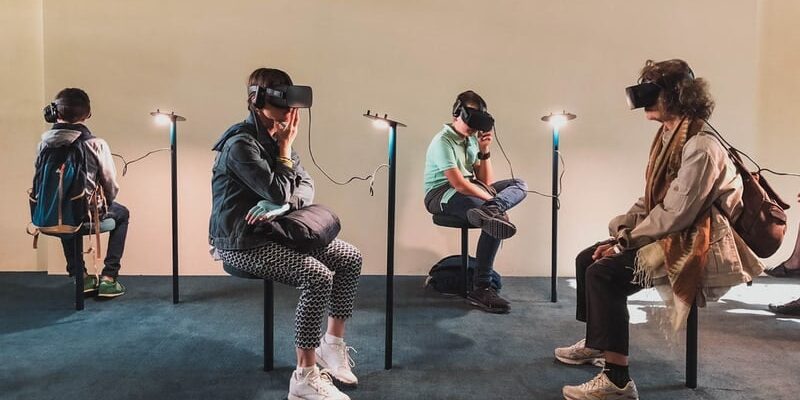If you’ve been on the internet at all for the past few months, you’ve probably heard the word ‘metaverse’ being thrown around a lot. Leaders in the technology industry like Facebook’s Mark Zuckerberg and Microsoft’s Satya Nadella especially have brought up the metaverse when discussing the future of the internet.
Interestingly enough, experts in the industry have said that talking about the metaverse in 2022 is a lot like talking about the internet in 1970. This analogy alone seems to suggest that 30 years from now, the implementation of the metaverse could be just as important and crucial to society as the internet is today.
There’s a lot to be said about the potential the metaverse has to completely change the future of how we use technology in our day-to-day lives, but first: What exactly is the metaverse, anyway?

What is the metaverse?
New York Times’ lead consumer technology writer Brian Chen defines the metaverse as “the convergence of two ideas that have been around for many years: virtual reality and a digital second life.” The metaverse offers a virtual reality experience where users can conduct activities digitally.
Virtual reality, often referred to as VR in the industry, requires users to wear headsets that cover the eyes and motion-sensing controllers that follow your every move. Users will watch through the headset as their virtual selves move and respond just as their real-life selves do simultaneously.
Virtual reality has existed within the gaming community for years now, and there are millions of YouTube videos you can watch that document online creators trying out VR-style games. Many of these games have millions of players and downloads. Beat Saber, a VR rhythm game released in 2018, has over 4 million current downloads and thousands of monthly players.
While some games are made for the VR headset specifically, there are also many well-known games that have been updated to accommodate the newest upgrade in gaming technology. For example, Tetris Effect is a modern update on the classic Tetris game that has been in production since 1984.
If the idea of the metaverse is still somewhat confusing, take this tip from Wired writer Eric Ravenscraft: Try replacing the word “metaverse” with “cyberspace.” Nine times out of ten, the meaning of any given sentence won’t change in the slightest.

Why is it important?
The metaverse is important primarily because it seems to be the future of technology.
Leaders in the tech industry have made it abundantly clear that the metaverse is quickly becoming an asset to technology as a whole. In fact, Microsoft even cited the metaverse as a reason for buying Activision Blizzard for $68 billion just last month.
Or consider Fortnite, 2021’s most played video game with over 12 million players. Fortnite has made many strides to create a distinct space in the metaverse. Huge artists like Ariana Grande, Travis Scott, and Marshmello have all held concerts in-game for millions of concurrent users. All of the concert-goers attended with their customizable Fortnite characters.
This, along with countless other examples of celebrities hosting video-game concerts, solidifies the notion that the metaverse is the future of technology in our society. Virtual attendance to high-profile events is quickly becoming commonplace- and that trend will likely continue to increase for the next few years.
That isn’t to say that in-person events will become completely irrelevant in the future. In-person events have their pros and cons in the same way that virtual events do. With so many experts in the industry affirming that the metaverse will continue to expand and grow in the foreseeable future, it’s important to understand the metaverse as a whole. The newest generation of young professionals is constantly finding ways to make life more efficient and accessible.
To put things simply, the metaverse is important because, with it, the possibilities are endless. In the same way that people in 1970 had no idea the impact that the internet would one day have, we have no way of knowing how crucial the metaverse might be in the future.

